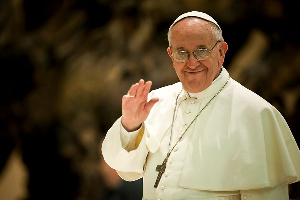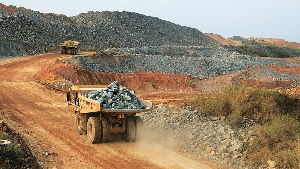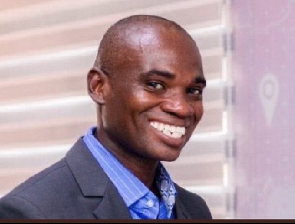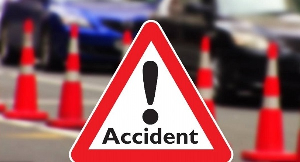There is no denying or ignoring the fact that the revoltingly cyclical corrupt practices amongst public servants have, regrettably, culminated in economic downslide amid excessive public spending, less efficient tax system , needless high public deficit and destabilisation of national budgets, heightened capital flight and the creation of perverse incentives that stimulate income-seeking rather than productive activities.
In fact, some of us listened with a glint of suspicion and endless bewilderment the opposition NDC operatives recent high sounding press conference intended to censure President Akufo-Addo on his alleged lackadaisical approach towards the fight against corruption.
It was, indeed, a dreary press conference with the sole aim of painting Akufo-Addo and his government as corrupt.
Truth must, however, be told, it would be somewhat unreasonable for anybody to assume that President Akufo-Addo has engaged, or is engaging in corrupt practices.
In as much as the well-meaning Ghanaians have every right to bemoan the lack of prosecutions in the alleged bribery and corruption cases, it is unfair for anyone to blame Akufo-Addo and side-line the institutions which have the mandate to investigate and prosecute corruption suspects.
More so it would only take an inveterate propagandist or a disputatious character to suggest that Akufo-Addo is not doing enough towards the insurmountable battle against corruption, and therefore he is corrupt to high heaven.
In fact, President Akufo-Addo’s actions and inactions towards the fight against the canker of corruption cannot be underestimated.
How could anyone aim a finger at a man who has created the Office of the Special Prosecutor with the view to combating the corrosive effects of corruption?
How would you accuse someone who can even report his own right-hand men to the investigative body such as the Criminal Investigation Department?
Let us face it, it is unreasonable for anybody to suggest that a politician who can even reject the juicy trappings of a ministerial post can be corrupt.
Believe it or not, the man Akufo-Addo has been in active politics for well over forty years and there hasn’t been a single corruption case against him, either directly or indirectly.
So, why must anybody with a reflective mind think that the septuagenarian president will now indulge in malfeasance?
To be quite honest, it is only the mischievous and the antagonists of Akufo-Addo who would aim accusing fingers when it comes to corruption.
In fact, the appointment of the Special Prosecutor and the subsequent inauguration of the Special Prosecutor’s Board by His Excellency President Akufo-Addo on Thursday 12th July 2018 was a clear manifestation of the president’s unfailing commitment and willingness towards the fight against the corruption menace.
Let us, however, be honest, much as the paradox of exposure is somewhat relevant in the fight against corruption, it is not an isolated tool, it goes hand in hand with the prevention and deterrence.
Thus, the creation of the Office of the Special Prosecutor, arguably, remains the single most important accomplishment of President Akufo-Addo’s administration so far.
I have always insisted that Westerners are not less corrupt than their African counterparts. However, what makes the people elsewhere much more responsible than a Ghanaian and Africans as a whole is the rigidity of the state institutions and the effective laws and regulations.
It is absolutely true that elsewhere, the laws and regulations are strictly enforced, and as such the vast majority of the citizens and denizens prefer the observance to the stringent fines and the harsh punishments.
It must, however, be emphasised that in as much as the followers have a duty of obligation, it is up to the leadership to bring sanity into the system by strictly ensuring that all laws and regulations are enforced without fear or favour.
So to me, the introduction of a Special Prosecutor is a pragmatic way of tackling the rampant bribery and corruption cases head-on.
Readers would bear with me that corruption is a serious economic, social, political and moral impediment to nation building, and therefore it is expected that corrupt officials will be held accountable at all times without fear or favour.
Corruption, as a matter of fact and observation, is found in all countries—big and small, rich and poor—but it is in the developing world such as Ghana that its effects are most destructive.
Unfortunately, however, it would appear that in Ghana, the justice system more often than not, descends heavily on goat, cassava and plantain thieves, and let go the remorseless criminals who hide behind the narrow political colorations.
We have, therefore, been hoping somewhat fervently that with the arrival of the Office of the Special Prosecutor, the justice system is going to descend heavily not only on the goat, cassava and plantain thieves, but as well as the hardened criminals who hide behind narrow political colorations.
Indeed, it would be a great news if the Special Prosecutor managed to claw-back all the embezzled monies in the scandalous corruption cases involving the infamous Bus Branding, SSNIT, Brazil World Cup, GYEEDA, AZONTABA, SADA, SUBAH, the purported $300million debt incurred on the faded STS housing deal, the dubious Embraer 190 Aircrafts and hanger for the Ghana Armed Forces and over a US$100 million oil revenue loss between 2011 and 2013 as reported by the Public Interest& Accountability Committee.
Let us admit though, the benign and somewhat lenient approach towards the fight against the canker of corruption would not curb the widespread sleazes and corruption which have been retrogressing Ghana’s advancement thus far.
How on earth would individuals turn away from their crimes if the only available punishment for stealing the public funds is a mere plea to return the loot?
If we are ever prepared to beseech the fantastically corrupt public officials to only return their loots without any further punishment, we might as well treat the goat, plantain and cassava thieves same. For after all, what is good for the goose is good for the gander.
In fact, some of us cannot comprehend how and why the people we choose to entrust with the national coffers could team up with shifty individuals and steal gargantuan sums of money belonging to the nation without facing any stiff punishment.
In a grand scheme of things, the prevention and eradication of corruption should be a collaborative effort amongst governments and other interested parties to cooperate with one another with the support and involvement of groups outside the government such as civil society organisations, non-governmental organisations and community-based organisations.
If, indeed, the prevention and eradication of corruption is a collaborative venture, why did the previous governments and their Attorney Generals woefully fail to cooperate with other interested parties to investigate, prosecute and retrieve the stolen monies from the impenitent nation wreckers?
"When public money is stolen for private gain, it means fewer resources to build schools, hospitals, roads and water treatment facilities.
“When foreign aid is diverted into private bank accounts, major infrastructure projects come to a halt. Corruption enables fake or substandard medicines to be dumped on the market, and hazardous waste to be dumped in landfill sites and in oceans. The vulnerable suffer first and worst (Ban Ki-moon, 2009)."
Corruption, to be quite honest, impedes economic development by distorting markets and collapsing private sector integrity.
“Corruption also strikes at the heart of democracy by corroding rule of law, democratic institutions and public trust in leaders. For the poor, women and minorities, corruption means even less access to jobs, justice or any fair and equal opportunity” (UNDP 2016).
In practice, corruption is a global phenomenon which requires a collaborative effort to prevent and eradicate.
It was against that background that in its resolution 55/61 of 4 December 2000, the UN General Assembly recognized that an effective international legal instrument against corruption, independent of the United Nations Convention against Transnational Organized Crime (resolution 55/25, annex I) was desirable and decided to establish an ad hoc committee for the negotiation of such an instrument in Vienna at the headquarters of the United Nations Office on Drugs and Crime.
Subsequently, the international community adopted the UN Convention against Corruption in 2003 and came into force in 2005.
Suffice it to state that the UN Convention against Corruption is the first meaningful universal instrument enacted to prevent and combat corruption with a view to networking and building on a broad international consensus.
What exactly is corruption?
“Corruption is the misuse of public power (by elected politician or appointed civil servant) for private gain.
“Corruption is the misuse of entrusted power (by heritage, education, marriage, election, appointment or whatever else) for private gain”.
How are “offering”, “promising” and “giving” a bribe treated under the law?
In fact, different countries have different responses to these questions, by definition as well as interpretation.
In some jurisdictions, for instance, the courts may consider an oral offer of a bribe not as attempted bribery, unless the briber takes further steps. An OECD report, however, suggests that broad definitions of corruption may be one reason why prosecutions are so low.
Apparently, the OECD, the Council of Europe and the UN conventions do not explicitly define “corruption””, but have establish a range of corrupt offences.
For example, the OECD Convention establishes the offence of bribery of foreign public officials, while the Council of Europe adds trading influence and bribing of domestic public officials as well.
Besides, the UN Convention covers embezzlement, misappropriation of property and obstruction of justice. In fact, one mostly-cited mystery is distinguishing illegal trading in influence from legal lobbying.
Interestingly, the Council of Europe Convention criminalises trading of “improper influence”, i.e., corrupt intent.
On the other hand, the UN Convention only covers peddlers who “abuse” their influence. While the OECD glossary notes that international definitions of corruption for policy purposes are common, and cites “abuse of public or private office for personal gain” as a useful example for policy development” (OECD 2007).
Disturbingly, in Ghana, in spite of the fact that corruption is a serious economic, social, political and moral impediment to the nation building, our corrupt officials are bent on siphoning our scarce resources without a second thought.
There is no gainsaying the fact that Ghana’s transgressed and incompliant politicians and other public officials often get away with murder.
But despite the widely held notion that Ghanaian politics is full of extremely corrupt public officials, we have many selfless, morally upright and forward-thinking politicians like His Excellency President Akufo-Addo in our midst.
Truly, despite the unrepentant critics unsubstantiated claims of corruption, some of us are yet to sight, read, or hear a single act of corruption that has ever levelled against President Akufo-Addo.
On the other hand, there are more alleged bribery and corruption scandals hanging on the neck of Ex-President Mahama than any other president in the history of Ghanaian politics.
A typical example of alleged bribery allegation hanging on the neck of former President Mahama is the furtive gift of a brand new Ford Expedition vehicle worth over $100,000 from the Burkinabe Contractor, Djibril Kanazoe.
According to the investigative journalist, Manasseh, the Burkinabe Contractor, Djibril Kanazoe, had over the years been bidding for contracts in the country. However, he was not successful until a middleman led him to meet then Vice President Mahama.
Subsequent to meeting the then Vice President Mahama, Kanazoe was handpicked to build the $650,000 Ghana Embassy fence wall in Burkina Faso.
The account was however given that In September 2014, when officials of the Bank of Ghana met the Public Accounts Committee of Ghana Parliament (PAC), it came to light that an amount of $656, 246.48 had been spent on the construction of a fence wall over a parcel of land belonging to the Ghana Embassy in Burkina Faso.
Apparently, PAC requested the Bank of Ghana to look into what it referred to as: “the outrageous” cost of the project.
However, it came to light that the procurement process was breached to the advantage of President Mahama’s Burkinabe friend.
Amazingly, during an interview with Manasseh, Djibril Kanazoe admitted that he did not put in a bid for the contract, however, the Ghana Embassy in Ouagadougou wrote to his company to request price quotations for the project. He, however, forwarded the necessary quotes and was selected.
“Subsequently, the Burkinabe contractor delivered to President Mahama, the ‘gift’ of a brand new Ford Expedition vehicle in 2012, the same year his company was selected, again through sole-sourcing, to execute more projects” (See: ‘Burkinabe Contractor offers controversial gift to President Mahama’ ; myjoyonline.com, 15/06/2015).
Moreover, the then vice president, Mahama’s dreadful handling of the STX Housing deal which was supposed to provide affordable housing units to the security agencies leaves much to be desired.
It was, reported somewhat vividly, that although the deal did not materialise, the then Vice President Mahama allegedly gave us a bill of an excess of $300 million.
And, after the failed deal with STX to build 30,000 housing units for the nation's security agencies, the NDC government entered into another deal with the GUMA Group, for the construction of 500 housing units.
The deal which was spearheaded by the then Vice President Mahama was widely criticised by various stakeholders, just as the STX deal, following the decision to side-line local construction firms in favour of the foreign company. The unusually high cost of the project was also a source of concern to many.
Little did some doubtful Ghanaians believe former Attorney General, Mr Martin Amidu, when he told Ghanaians that our late President, Mills, set up a committee to Investigate then Vice President John Mahama regarding the Processes of the Acquisition of Five Aircrafts (5) including Embraer 190 Aircraft and hanger for the Ghana Armed Forces.
In fact, if we are to mull over Mr Amidu’s exposition, we can infer that the late Mills lost trust in his then vice president Mahama because of the dubious handling of the deal.
Truly, if the late Mills set up a committee to investigate his vice Mahama, then he had a glint of suspicion on his mind . In other words, he felt Mahama was trying to rip off the nation, hence setting up a committee to unravel the furtive deal.
In a way, upon a carefully considered deliberation, reflective thinkers may conclude that the late Mills was not happy with the deal.
And, if that was not the case, why would he set up a committee to investigate Mahama, the architect of the whole deal?
As a matter of fact, the traditional exemption of heads of state from prosecution despite the evidence of a case to answer is wrong, so to speak. For if the bribery and corruption; dubious judgment debt payments; stashing of national funds by some greedy opportunists and misappropriation of resources and crude embezzlement by some politicians do not warrant criminal charges, then where are we heading as a nation?
The all-important question discerning Ghanaians should be asking is: will the day come when “Ghana’s political criminals” find they have nowhere to hide?
To me, Ghana’s 1992 Constitution has to be reviewed and the irrational and inexpedient clauses such as the indemnity clauses are expunged and tossed into the dust bin accordingly.
How on earth can individuals commit unpardonable crimes (gargantuan sleazes and corruption) against the state and get away with their misdeeds?
And, how serious are we as a nation when we can only descend heavily on the goat, cassava and plantain thieves, and let go hard criminals who persistently dip their hands into the national coffers?
In ending, it is true that Akufo-Addo is a descendant of Biblical Adam with innate human foibles, but corruption, so to speak, is not one of his weaknesses.
Opinions of Thursday, 12 September 2019
Columnist: K. Badu





![Fatawu Issahaku [L] and Jordan Ayew Fatawu Issahaku [L] and Jordan Ayew](https://cdn.ghanaweb.com/imagelib/pics/718/71828066.295.jpg)









